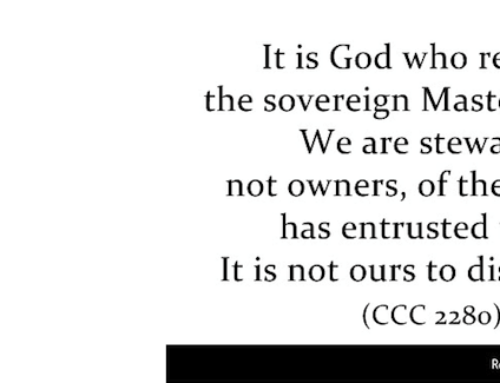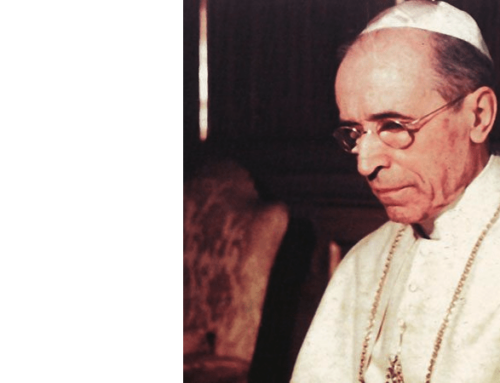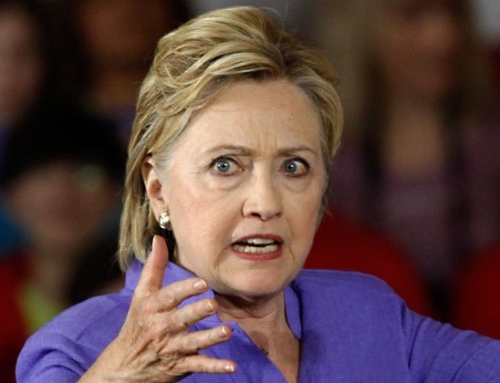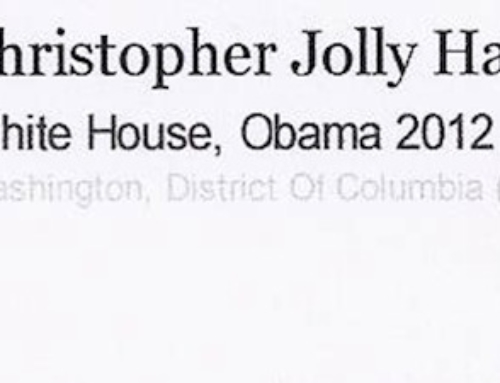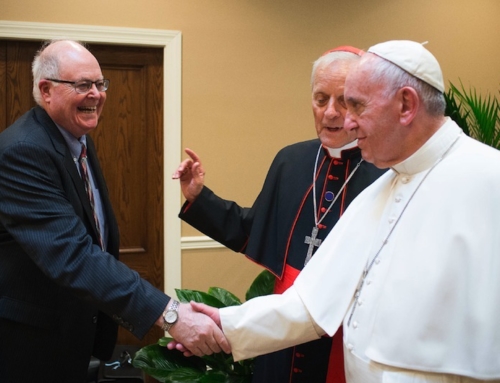by Michael Novak
(Catalyst 3/2002)
The government of the United States, George Washington wrote to the Hebrew Congregation of Newport in 1790, “gives to bigotry no sanction.” But now The New Republic does.
“The anti-Semitism of the intellectuals,” Peter Vierek once shrewdly remarked, “is anti-Catholicism.” In its January 21 issue, The New Republichas sunk into the swamp of bigotry as low as it could go. It gave 25 pages to Daniel Jonah Goldhagen so that he could offer Catholics a theological interpretation of what their faith entails, and hint broadly that the Church deserves destruction as an ally of the anti-Christ and enemy of humankind.
In Goldhagen’s fevered view, the startling uniqueness of Adolf Hitler’s totalitarian racial hatred, a uniqueness that preoccupied a generation of philosophers of history, has been diminished until Hitler for him is only a later “chapter” in the long history of Catholic perfidy and nefariousness toward the Jews.
The calm and objective assessment of wrong—with due regard for every circumstance—was not Goldhagen’s aim, neither as moral judge nor as historian. His tirade is theological in form, making an argument about the theological nature of Catholicism, its doctrines, its criteria for martyrdom and for sainthood, its proper relation to Judaism, its conception of what its mission as Church is (its ecclesiology), its relation to truth and its ideal relation to other religions.
In its title (chosen perhaps by his editors, but well justified by his closing questions), Goldhagen opens with a theological taunt: “What would Jesus do?” There is no evidence in Goldhagen’s work, nor in the recent history of The New Republic, that such a question is one he himself or the magazine for which he writes takes seriously. Nor is there any sign that he, or the magazine, has examined the life, work, and words of Jesus to see just what Jesus in fact did in the circumstances of his day closest to those of today. In other words, not a serious question but a taunt.
Regarding Roman imperialism, the subjection of the Jews, the Roman practices of slavery and torture (such as Jesus was made to suffer himself), according to the New Testament Jesus was, well, silent. “My kingdom is not of this world. If it were of this world, do you doubt that my Father would send legions of angels to my aid?”
His silence infuriated his accusers.
Unlike Jesus, Pius XII was not silent regarding the Jews. As secretary of state to Pius XI, he almost certainly had a determining hand in the letter condemning Hitler, With Burning Concern (Mit Brennender Sorge). Through the broadcasts of Vatican Radio, regularly amplified for the English-speaking world through The Tablet of London and the British intelligence and broadcasting services, Pius XII was the first to tell the world about the sufferings of Jews (by name) and other minorities, including during the war years more millions of Catholics than Jews. Much that the New York Times and the London Times published about the plight of Jews, Poles, and other civilians during the early war years came from the Vatican, through its radio broadcasts, papal statements, and the Pope’s newspaper (totally dependent on Mussolini for newsprint and less free than Vatican Radio) Osservatore Romano.
Although I have not read them myself, I am told by people I trust that the sworn depositions for the evidentiary process of beatification and canonization of Pius XII contain testimonies by persons well-known for their efforts to help the Jews, who affirm that they received specific instructions from the Pope to do so.
Even those scholars who minimize what the Pope did have had to admit that his personal efforts saved scores of thousands of Jews (in Hungary, Goldhagen admits)—too little, too late, they say. Was not what Schindler and Raul Wallenberg did also too little, too late, and yet altogether noble?
One may argue with Pius XII’s principles, but one cannot argue that they marked out the course from which he did not waver: (1) neutrality as between the belligerent powers, in the case that papal mediation might one day be sought; (2) timely and clear enunciation of relevant moral principles (platitudes, as Goldhagen calls them; the timeless moral law); and (3) the denunciation of egregious abuses of moral principles, such as mass murders, the imprisonment of civilians solely for racial or religious or ethnic reasons, and mass bombings from airplanes of civilian populations in cities.
The Pope did not lack courage, and he did not lack clarity of mind. Mistaken he may have been. Open to criticism like any other mortal he certainly is. He prayed much and suffered much internally under the pressure. But he did not waver. After the war, he received immense plaudits from the citizens of Italy, including the Jewish community of Rome, the nation of Israel, the Israeli Philharmonic that traveled to the Vatican in 1955 to give a concert in gratitude, and Jewish and other groups throughout the world. The rabbi of Rome became a Catholic, in large measure through being stirred by the assistance given Jews by the Pope and friendships formed in the process.
Though I am not a professional historian, I have read enough on Pius XII—and have a sizable personal library on the period—that I see the transparent tendentiousness of nearly every historical point that Goldhagen raises. In every case, he selects accounts or facts that set the Pope in the light he wishes to put popes into, and ignores facts, testimonies, and accounts that sharply contradict his version of events.
Yet let us suppose for a moment that every accusation Goldhagen makes against Pius XII is true. So then we had, as publisher Martin Peretz has it, a “wicked man” as pope. Well, it wouldn’t have been the first one. Indeed, Goldhagen says there is a danger in concentrating on Pius XII, because his personal behavior isn’t the issue. What is wrong with Christianity runs through all the popes. It infects the core of Christian theology itself. It corrupts the very essence of the Church. What Goldhagen calls for is nothing less than the extermination of the Church as it now is and has been since the beginning. Ecrasez l’infame.
The great sin of which Goldhagen accuses the Church is its “supersessionist creed,” namely, its clear teaching that the New Covenant supersedes the Old Covenant. Even to speak of “New” and “Old,” Goldhagen quotes a soulmate, “is inherently supersessionist.”
As John Paul II has made clear, however, the Jewish Testament remains valid; God can no more become unfaithful to His covenant with the Jews than He can to His covenant with Christians. The relation between Jews and Christians, therefore, is asymmetrical. Christians must understand and accept Jewish faith, in order to accept Christian faith. Their God is also the God of Abraham, Isaac, and Jacob. Apart from the background, principles, and prophecies of the Jewish Testament, the Christian Testament does not make sense. Christians, in order to be Christians, must be Jews in belief (though not in circumcision and ritual), in a way that, in order to be Jews, Jews need not be Christians. That is the asymmetry.
To put this another way, in order to go deeper into their own faith as Christians, it is both common and altogether necessary for Christians to go deeper into the Jewish Testament and plumb all they can of Judaism, the Judaism of serious reflection today, as well as of yesteryear. For this reason, Christians today need a vital, believing Jewish community that will lead them into the depths of Jewish faith. The reverse can scarcely be said of Jews, many of whom feel no need whatever, in order to be Jews, to study Christian doctrine or history.
The reason Goldhagen is quite guilty of the charge of anti-Catholicism lies in the breadth and passion of the smears he spreads across a broad history, the distortion and hysteria of his tone, the extremity of his rage, and the lack of proportion in his judgments—dwarfing Hitler and making Pius XII a giant of evil, and then diminishing Pius XII so as to indict the whole of Christian theology down the ages. It is disingenuous of him to stop at Christ, the good and gentle Christ of his parody, and at the edges of the Christian Testament, which is our main source for knowledge about the character and teachings of Christ.
Goldhagen went over the top in disqualifying Catholics from any moral standing, so long as they hold to Catholic faith as it is. He wants a new type of Catholicism to supersede the old. In this, he reminds me not a little of Voltaire and other haters of the Church. The Enlightenment, too, was supersessionist in its self-conception, its light triumphing over the darkness of Rome—and not just of Rome, but of Jerusalem as well.
We have all had to learn that we must accept one another’s reality as we are, without trying to make others over into our own image of what they ought to be. We can appeal to one another in argument and in debate, in mutual searching, and even in mutual fraternal correction of one another’s oversights and errors. But mutual honor and respect are the first preconditions of dialogue. It is sad that The New Republic went over to the side of a bigotry that makes dialogue impossible. After many centuries of woe, we need every moment of dialogue that we can get.
Michael Novak holds the Jewett Chair in Religion and Public Policy at the American Enterprise Institute. He also serves on the Catholic League’s board of advisors. This is an amended version of an article that first appeared in the National Review and is reprinted here with permission.


